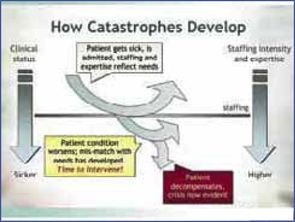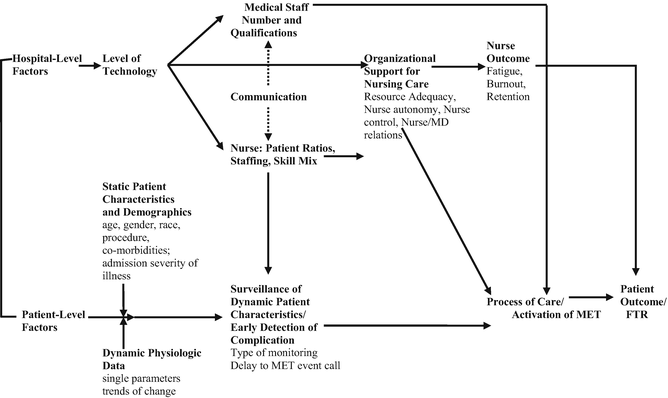
Failure To Rescue Nursing Definition. Failure to Rescue FTR. Failure to Rescue is the delayed or inadequate response to clinical deterioration in hospitalized patients resulting in risk in patient safety. As a safety and quality measure failure to rescue has been defined as the inability to prevent death after the development of a complication. Clarke.

Needleman Buerhaus Mattke Stewart. Comparing definitions to measure quality of care For general surgery more limited definitions used by FTR-N and FTR-A omit over 40 of deaths display less reliability and may have more questionable validity than the original FTR measure. Failure-to-rescue mortality rates quality of care patient safety indicators outcomes research Medicare claims data Med Care 200745. Furthermore the issue has acquired an official name Failure to Rescue from Complications and a precise definition from the Agency for Healthcare Research and Quality see AHRQs Guide to Patient Safety Indicatorsat wwwqualityindicatorsahrqgov. Failure to rescue occurs when a generally healthy hospitalized patient develops complications deteriorates and subsequently suffers an adverse outcome. Silber Williams Krakauer Schwartz 1992.
The Nursing Role FTR Definition.
918-925 Failure-to-rescue FTR is a measure of hospital quality of care that has been growing in popularity. Failure to rescue as a nurse-sensitive indicator was found to be a failing to rescue process characterized by a cascade of events including four key attributes. Rates of failure to rescue. Failure to Rescue is the delayed or inadequate response to clinical deterioration in hospitalized patients resulting in risk in patient safety. In their article Silber and colleagues examine 2 measures that define failure-to-rescue in a substantially different way from their original approach. Failure-to-rescue FR refers to the inability to save a patients life after the development of a complication Aiken Clarke Sloane Sochalski.